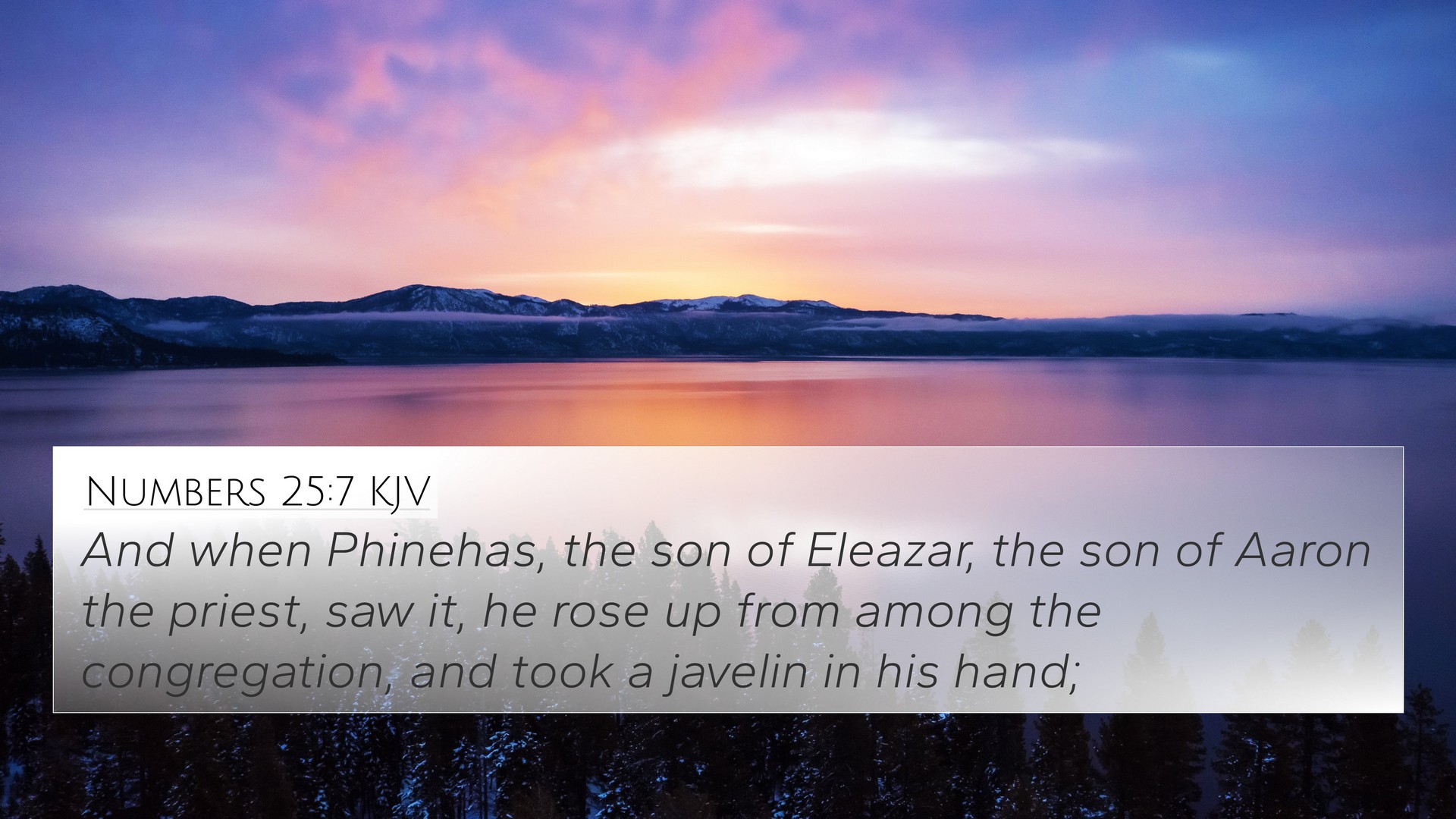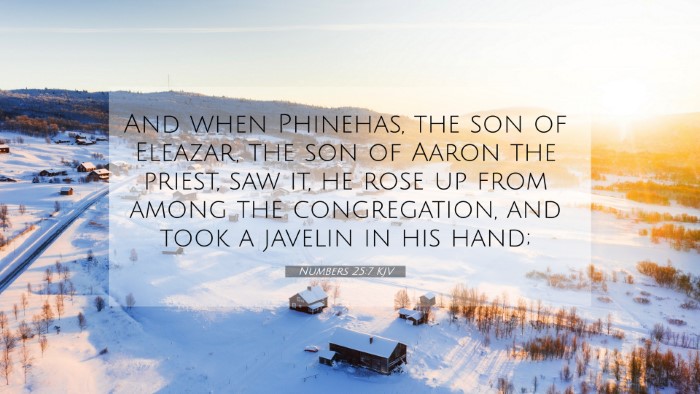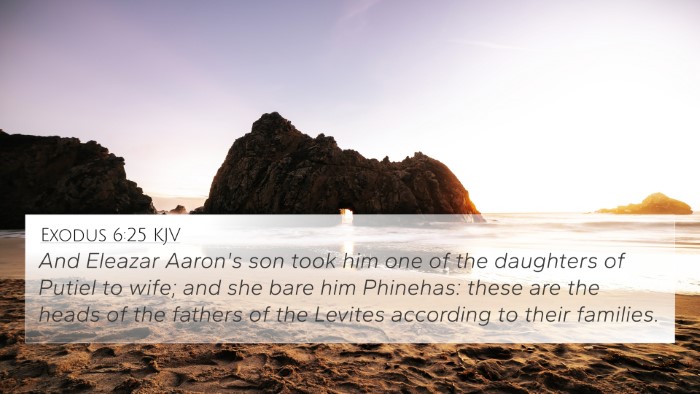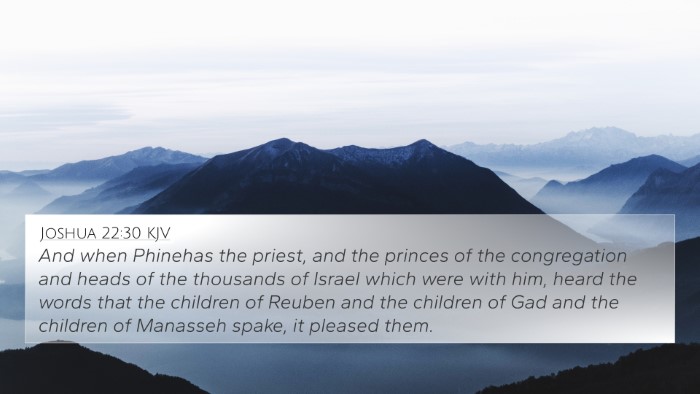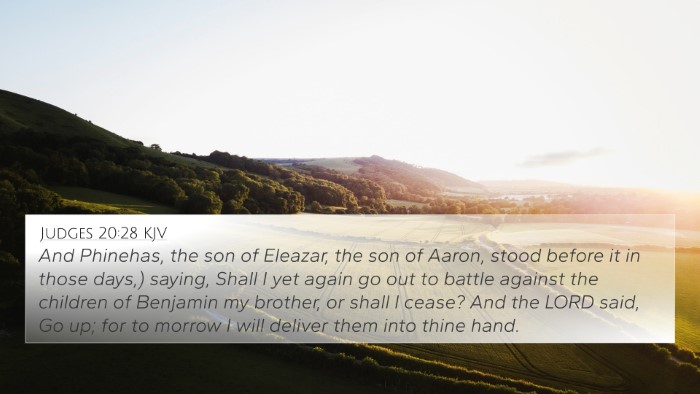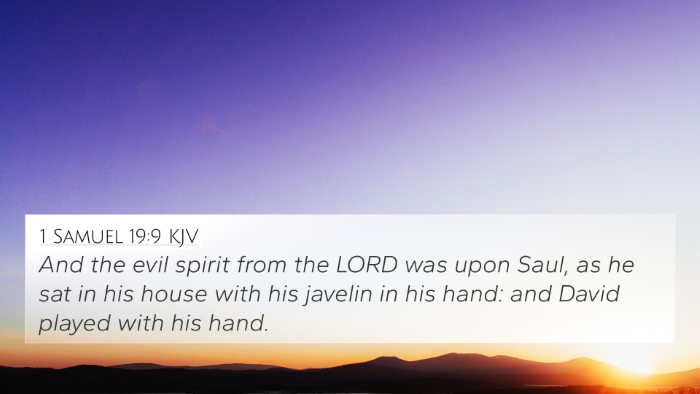Understanding Numbers 25:7
Verse: Numbers 25:7 - "And when Phinehas, the son of Eleazar, the son of Aaron the priest, saw it, he rose up from among the congregation, and took a javelin in his hand." (KJV)
Summary of Meaning
Numbers 25:7 describes a pivotal moment in Israel's history when Phinehas, motivated by zeal for God's holiness, acts decisively against immorality impacting the Israelite community. His actions not only reflect an intense personal commitment to uphold the sanctity of the covenant but also reveal God's response to sin among His people.
Commentary Insights
-
Matthew Henry's Commentary:
Henry emphasizes the zealous nature of Phinehas as he rises among the congregation, indicating a readiness to take action against sin. He notes that this incident illustrates the seriousness with which God views immorality, highlighting Phinehas's act as pivotal in turning away God's anger from Israel.
-
Albert Barnes' Notes:
Barnes points out that Phinehas, being the grandson of Aaron, signifies a continuity of priestly zeal. His act of taking a javelin symbolizes not only the need for immediate sacrificial action against sin but also indicates God's willingness to protect His people when they show similar zeal for righteousness.
-
Adam Clarke's Commentary:
Clarke elaborates on the idea that Phinehas’s actions serve as a type of intercession. His righteous indignation leads to a divine covenant of peace and a promise of an everlasting priesthood for his descendants, showcasing the connection between righteousness and divine favor.
Cross-References to Numbers 25:7
- Exodus 32:26-28: The zeal shown by the Levites during Israel's idolatry mirrors Phinehas's passionate response.
- Psalm 106:30-31: A reflection on Phinehas’s act as a turning point for Israel, resulting in God's favor.
- Hebrews 13:4: Uphold the sanctity of marriage, similar to Phinehas's defense of fidelity to God.
- Revelation 2:14: A warning against moral compromise, as faced by the early church, paralleling Israel's struggle.
- Joshua 22:30-31: The importance of zeal for God in unity among the tribes of Israel reinforces Phinehas's actions.
- Malachi 2:4-6: The role of priestly zeal and its conservation aligns with Phinehas's lineage for God’s promise of peace.
- 1 Peter 2:9: The call for God's people to be a royal priesthood echoes Phinehas’s commitment to holiness.
Thematic Connections
The theme of divine justice and the necessary response to sin is prevalent in both the Old and New Testaments. Phinehas's actions not only stop a plague but also serve as a foreshadowing of Christ's ultimate sacrifice for the atonement of sin, portraying the heightened need for holiness within both communities.
Application for Today's Believer
In light of Numbers 25:7, believers are encouraged to reflect on their own zeal for holiness and the importance of taking a stand against societal immorality. Just as Phinehas acted in defense of God’s name, Christians today are called to uphold the values of their faith courageously and faithfully.
Tools for Bible Cross-Referencing
For a deeper understanding of inter-Biblical dialogue, utilizing a bible concordance or bible cross-reference guide can be advantageous. These tools can assist in identifying the connections between Bible verses and the implications of those connections for personal study and spiritual growth.
Conclusion
Numbers 25:7 is not just a historical account, but a profound narrative that speaks to the necessity of righteous response and the significance of covenantal faithfulness in Scripture. By exploring its cross-references and thematic connections, believers can appreciate its relevance and applicable lessons in their faith journey.
